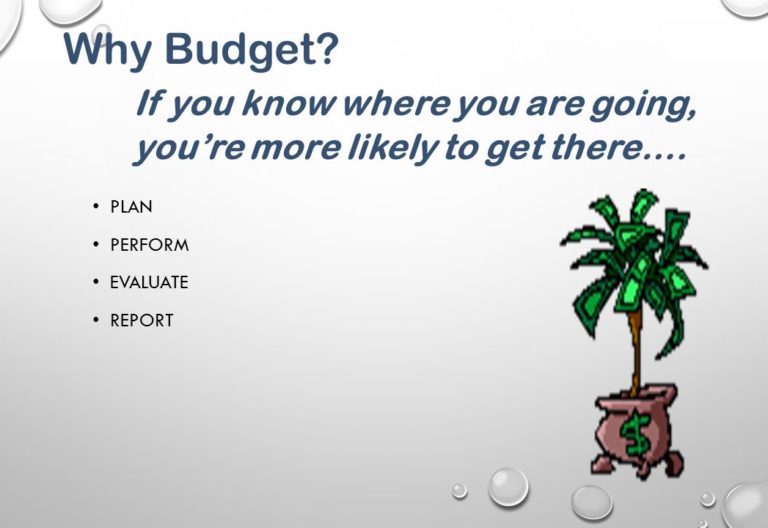The first month of the year ended some few days ago and we are in a new month but have you stopped to consider how January performed, especially against targets and against January 2020?
This article explains how you can do that by using budgets. If you do not have a budget for your business, we will provide a template at the end of this article for you. Now that you have your 2020 budget, it is time to check it against the actual performances. This is termed as budgetary control.
Budgetary control is therefore the practice of using budgets to track actual activities to ensure that they either do not deviate from planned results or deviate but very insignificantly. One of the challenges businesses face is effectively managing their business operations, especially financial resources. However, businesses will find a respite from such a challenge if the ideas embodied in budgetary control are embraced. In this article, I provide highlight of the main stages of budgetary control and how businesses can leverage on these for effective management of their cash resources and even extend to other areas of their businesses.
SET A PLAN
The first step in budgetary control is for a plan to be set. A plan is simply a list of goals or objectives desired to be achieved within a particular period. It should be clear and specific. Measurability of the plan is equally essential. Again, the plan must be one that can be achieved and will be relevant for the business of the entity in question. For example, a manufacturing firm may set a plan of producing 500,000 metric tonnes of its products within the first six months of a given year. Additionally, a travel and transport firm may set a target of spending not more than GHS 20,000 on transportation expenses for the first quarter in a year.
UNDERTAKE ACTIVITIES
After the plan has been set and all essential features have been ensured, the next thing is to undertake the very activities for which the plans have been set. As in the case of the examples above, the manufacturing firm will go ahead with its production in the same way the travel and transport firm will carry on its transport of clients.
RECORD ACTUAL RESULTS
This stage involves a record of the results obtained after the planned activities have been undertaken. The manufacturing firm will record how many metric tonnes could be produced within the planned time period. In the same vein, the transport firm will take note of the expenses incurred during the first quarter. Do note that this stage simply involves a record of actual performance.
COMPARE ACTUAL RESULTS WITH PLANS
At this point, there is a comparison of the planned results, thus, the budget with the actual recorded performance. The importance of keeping records on planned and actual outcomes is emphasized here as there will be a difficulty in comparing results if no records are kept.
ANALYSE VARIANCES AND TAKE OF CORRECTIVE ACTION
Variance refers to the difference that arises from planned and actual results not being equal. For instance, there is a variance of 200 bags when a business planned to produce 500 bags in the 2nd quarter of 2018 but eventually produced 300 bags. Variances may be favorable or adverse. It is favorable when in terms of cost, actual is lesser than planned outcome or in terms of income, actual is more than planned results. Similarly, it is adverse when in terms of cost, actual is more than planned outcome or in terms of income, actual is less than planned results. In our scenario used throughout, the two firms will make an analysis for variances and determine the type of variance, if any. This stage comes after a comparison has been made of actual performance with planned performance. The final thing to be done involves people in managerial positions taking actions aimed at correcting any adverse consequences from activities undertaken. As a business, you stand to benefit greatly if you give time and attention to implementing budgetary control into your business operations.
budgetvariancevariance analysis



[…] A business can measure its financial performance in diverse ways, for example, by comparing current with past performance or with the performance of a competitor. Another way is through the use of budget. Budgets, among other things, give insight into how a business wishes to perform in respect of revenue and expenditure for a forthcoming period. Consequently, a business can compare its actual performance for a period with the budget it prepared for that period. Variances (differences) can then be analyzed and corrective actions taken where necessary. A comprehensive notes on how to do can be found on in this article: How To Use Budgets To Manage Your Business Performance. […]